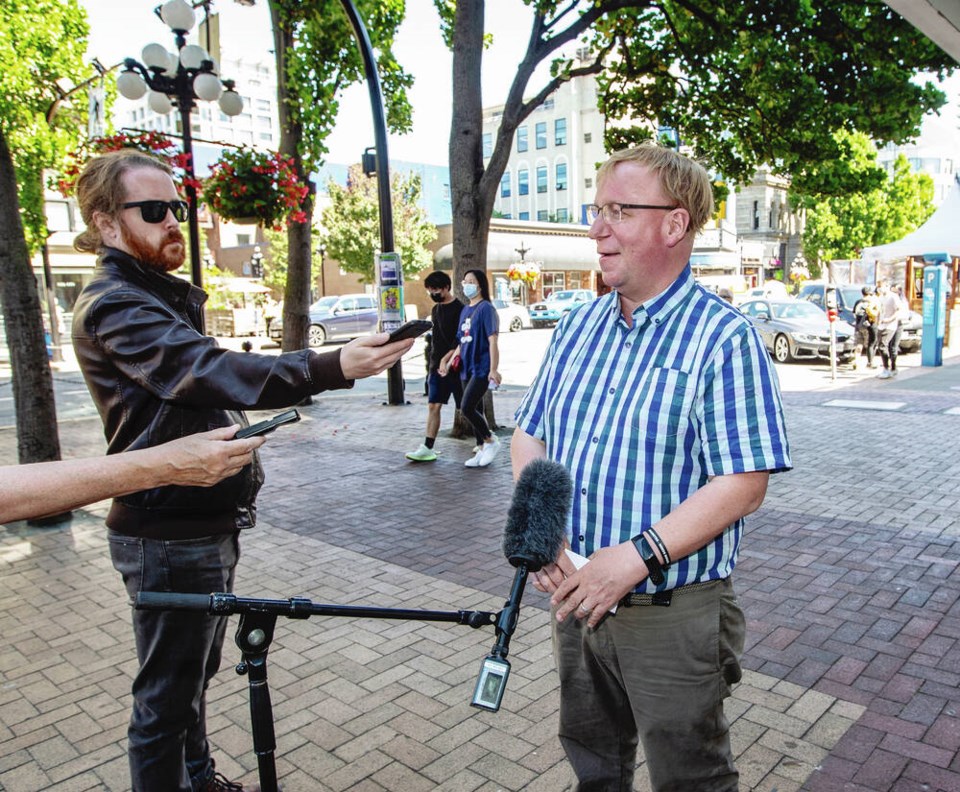Victoria’s tourism industry sees a chance to salvage the season with the federal government planning to drop the last of its COVID-19 border restrictions this weekend.
“It’s a big deal,” said Paul Nursey, chief executive of Destination Greater Victoria. “This puts us on a level playing field again.”
Nursey said with the announcement the final COVID-19 restrictions at Canada’s borders will be lifted on Saturday, the country is catching up to its travel competition. “Great Britain, New Zealand, Australia, Commonwealth countries, even ones that were very conservative during COVID have already done this, we are the last to drop these types of restrictions.”
The federal government announced on Monday an end to mandatory vaccination, random tests, quarantine, use of the ArriveCan app and masks on planes and trains.
Nursey said the impact may not be felt for a while, but it could help some companies salvage the season. “Fall is kind of important here and I think for some operators like Clipper and Coho, it’ll help salvage a year. I think getting an American visitor up from Seattle again with less friction at the border will mean a lot to the small businesses here in the fall and Christmas season.”
The restrictions will be lifted on Saturday after the government didn’t renew a cabinet order.
“This is very welcome news for hotels and tourism in the region,” said Bill Lewis, general manager of the Magnolia Hotel and president of the Victoria Hotel Association. “The uncertainty surrounding random testing has been the most pronounced of the border restrictions over the summer season, impacting shorter trips specifically in both directions.”
Lewis said he’s seen guests reconsider last-minute getaways based on the potential for random testing.
“I think heading into off-season, the immediate impact will be limited, but certainly we’ll expect to see continuing increased tourism from the U.S.,” he said.
Ryan Burles, president of Black Ball Ferry Line, which operates the Coho car ferry between Victoria and Port Angeles, said it’s a huge step as the company has seen a lot of travellers anxious about using the ArriveCan app.
He said if travellers who actually show up are feeling anxious about using the app incorrectly, how many travellers have simply not bothered to take the trip? “So this is great for our customers as it takes down another barrier and there’s one less thing to go through.”
Burles expects they could start seeing an impact immediately, based on the number of people who have wanted to travel but couldn’t because of restrictions. But he said it’s also likely to take some time for the news to get out and for people to feel comfortable again.
The Coho’s foot passenger traffic and day-tripper traffic is still only about 65 per cent of where it was pre-pandemic.
Matthias Pahnke, chief executive of FRS Clipper, which operates the passenger ferry between Victoria and Seattle, said the moves will have an immediate impact. “Since restarting service this past April, required proof of vaccination has certainly been a deterrent for our ridership and a lost segment of potential visitors to Victoria. We fully agree with the Canadian government’s approach to data and science in moving ahead with the decision to remove these border processing measures.”
Pahnke also welcomed the dropping of ArriveCan, which forced the company to have at least two additional staff at the Seattle terminal to assist guests with using it.
“The removal of ArriveCan is both a cost savings measure but also a critical step forward in returning back to the seamless check-in and border crossing experience we want for all of our guests,” he said.



